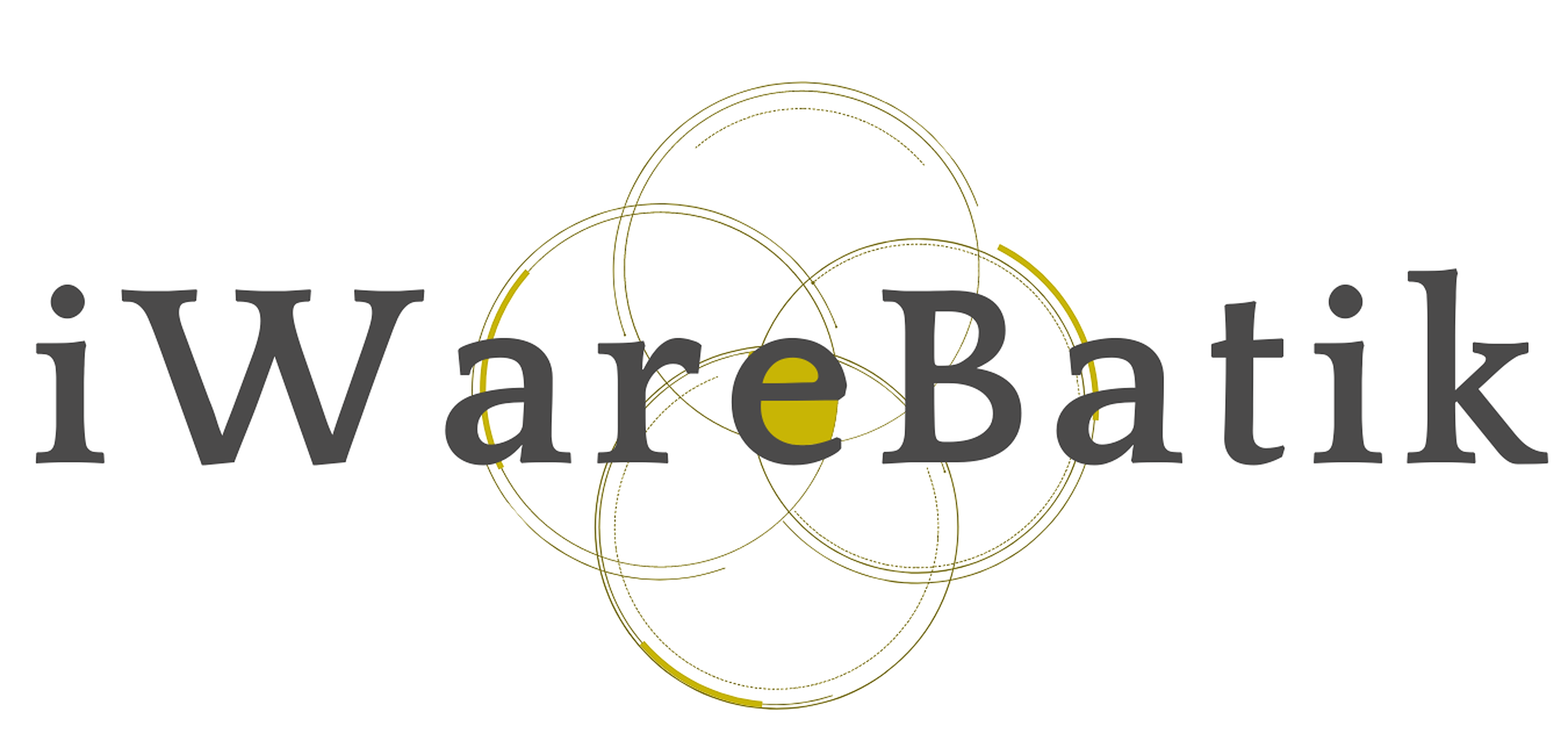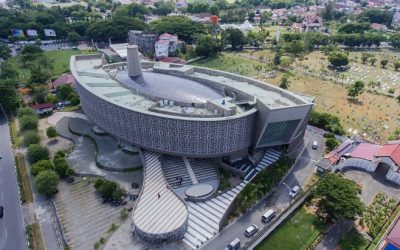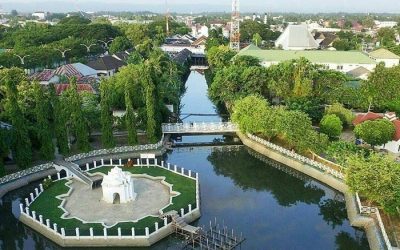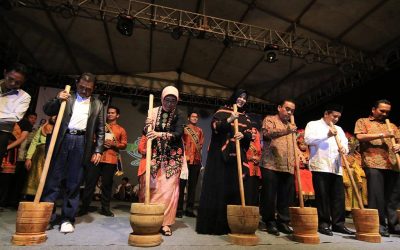Home / Batik Regions – Western Indonesia – Northern Sumatra – Aceh / Baiturrahman Historical Grand Mosque
Cultural Destination
Embrace the spirit of the place!
Baiturrahman Historical Grand Mosque
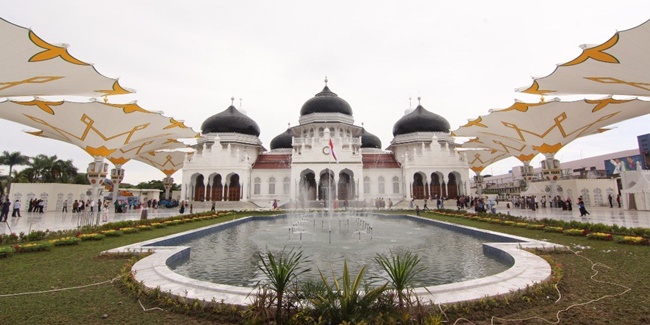
The Baiturrahman Mosque in Aceh (photo: Kanalaceh)
Baiturrahman Historical Grand Mosque
The Grand Mosque of Aceh was built in 1612 during the reign of Sultan Iskandar Muda and functioned as a fortress against the invaders. The construction of this mosque represents the superiority of Aceh’s local architecture that is resistant to any disasters. This mosque remained intact and became a shelter for the community during the big tsunami disaster in 2004.
Tourist Attractions in Aceh
Aceh Tsunami Museum
The Aceh Tsunami Museum is a memorial monument of the biggest Tsunami disaster that
Putro Phang Royal Garden
Putro Phang Royal Garden is an expression of love built during the era of
Aceh Gayo Premium Coffee Festival
Gayo Aceh Arabica coffee is the best premium organic coffee in the world, recognized by
Aceh Batik Motifs
Kerawang Tegak Aceh
The Vertical Upright (Kerawang Tegak) Motif symbolizes a person who has a strong
Discover
Indonesian
Batik
Motifs
Rangkiang
The word “Rangkiang” refers to the rice granary in the Minangkabau language. It symbolizes
Jupri Kembang Teh
Kembang Teh illustrates the tendrils of tea plants that grow in the highlands of
Daun Simpor
This motif is inspired by the Simpor plant (Dillenia Suffruticosa) which is a typical
Ukir Sentani
The Ukir motif is a batik motif that is inspired by various traditional Sentani wood carvings
Tifa Totobuang
The batik motifs illustrate Maluku’s traditional music instrument called
Kaganga Tanah Rejang
If Batik Besurek combines Arabic calligraphy motifs, then the Kaganga batik takes
Angsa Duo
According to legend, the Angso duo batik motif is a pair of swans that are believed to have led Princess
Lipaq Sabe
Lipaq Saqbe contains a simple geometric classical motif with various flower decorations. This textile is
Srimanganti
The name of the Srimanganti motif is derived from Palace’s hallway that connects to
Teguh Bersatu
This batik motif shows the strength of the people of Kupang. It also represents a sense of
Tenun Bima
The motifs are adopted from Bima woven textile. This pattern has received a great
Besurek Rembulan
This batik illustrates praise for God who created the wonderful universe
Tubo Kelapa
Coconut tree is a symbol of a good character and strong mentality. It illustrates the more success a person, the more
Karawo Mahkuta
Mahkuta refers to Gorontalo’s traditional crown. It represents noble characters of
Wirasat
Wirasat or divine inspiration is a gift from God. This inspiration is symbolized by
Pucuk Rebung Riau
Pucuk Rebung symbolizes heart determination in achieving goals, good luck, and
Pati-Pati Pinehiku
It symbolizes the hierarchy in society and the social status of the Mekongga
Pala Salawaku
This motif illustrates the unique weapons of the Maluku region, namely
Lok Baintan Floating Market
As you can imagine, the most authentic thing is that you can buy things and even
Cengkeh
The clove flower motif is the main commodity of the Tolitoli Regency. This motif represents
Leuit Sijimat
This motif reflects the daily activities of the Baduy tribe in Banten. The main ornaments of batik motif consist of:
Sido Mulyo
Sidomulyo is one of the classical motifs, which is specifically used for the bride’s costume in
Pattimura
Pattimura is the name of an Indonesian hero who fought against colonialism in
Lontara
The Lontara script itself is a typical ancient script of Bugis and Makassar communities. History records that
Merak Ngeram
The hatching peacock motif has a very deep meaning which refers to the sacrifice and
Buketan Bali
The Balinese bouquet (Buketan Bali) is a floral arrangement and the name is
Prada Papua
The word “Prada” in the Javanese-Indonesian dialect means a batik textile that
Insang Ikan
Insang refers to the gills of the fish. This is a typical pattern of Malay ethnic who inhabits
Kuda Kupang
Horses symbolize wealth. It contains noble values of virtuous characters that bring
Durian Pecah
Broken Durian motifs depict the foundation of faith. The second half signifies the mastery of
Parang Rusak
Another meaning behind this motif is an unconquerable spirit, symbolized by
Enggang Dayak
Local people beliefs that hornbills are an incarnation of the Commander of the Birds. It has supernatural
Wakatobi
It symbolizes the coastal beauty of the Wakatobi island and the symbol of Patra symbolizes
Daun Lada Hitam
The black pepper motif represents the main commodity of Bangka Belitung
Daun Sirih
This motif illustrates betel leaves that are used by Lombok communities as traditional
Honai
The Honai is inspired by the traditional house of the Papuan community living in
Besurek Rafflesia
The term “Basurek” refers to a textile that contains letters or inscriptions
Pohon Hayat (Tree of Life)
The Batik motifs in Lampung are dominated by the acculturation of Buddhist and
Bintik Tujuh
The Bintik Tujuh (Seven Dots) motif has 7 white spots and green color gradation as
Tengkawang Ampiek
With its many advantages, the Dayaks use this leaf in ritual ceremonies. This plant is a symbol of
Bomba Mawar
This motif means sacred love for family, kingdom, and God; It also illustrates
Burung Bidadari
Bidadari birds are endemic birds in Halmahera. This motif represents an
Tabir Tanjung
Tanjung flower is a type of Cherry tree flower, which is commonly found in
Bultiya
The word ‘Bultiya’ is an acronym of the three major tribes in North Kalimantan, namely
Pinawetengan
The Pinawetengan Batik pattern was taken from a prehistoric inscription in
Gamolan
This motif illustrates Gamolan, a bamboo musical instrument of Lampung that is
Sekar Jati
Sekar means flower and Jati refers to teak trees that symbolizes a strong mental character that
Singayaksa
The Singayaksa motif comes from the name of a place where Sultan Hasanuddin used to
Gonggong Beruntun
This motif illustrates that a person should maintain a positive attitude and
Kaharingan
The Kaharingan or ‘tree of life’ based on the Dayak tribes’ belief system. This tree symbolizes
Keluak Daun Pakis
The word “Keluak” is a Minang language which means twisted or tangled. The Motif of
Gumin Tambun
Based on Hindu mythology, this motif symbolizes lucks, abundant wealth, and
Rumah Mamuju
the Batik motif illustrates the house of Mamuju King with the stairs, located on the left of the wooden stage house
Karawo Pinang
Pinang refers to the Palm areca tree. This motif is considered as the original
Bale Lumbu
This motif signifies the welfare of the ancient Sasak society. Bale also symbolizes the
Biji Kopi
The coffee seeds motif illustrates the pride of local coffee specialities in
Mahkota Siger
Siger is the crown of a noblewoman in ancient time. It is a symbol of femininity, strength, and
Gorga Simeol-Meol
The Gorga Simeol-meol is a pattern of plant tendrils. it is regarded as a symbol of longevity and
Dayak Taghol
Dayak Taghol has a distinctive style of four curved lines and small dots. This motif represents
Sekomandi
Its philosophical meaning is the eternal union which refers to a saying “until death do us part”
Kerawang Tegak Aceh
The Vertical Upright (Kerawang Tegak) Motif symbolizes a person who has a strong
La Galigo
La Galigo is a literary work of the Buginese Epic that has 300 thousand epic lines. It is considered even
Manguni Minahasa
Manguni is identified as the symbol of the Minahasa people. Manguni is known as a
Gentala Arasy
Built as high as 80 meters, the tower also highlights the historical side of
Tanah Liek
The word “Tanah Liek” refers to clay in Minang language. It is also known as
Awan Berarak
Awan Berarak is a combination of Dayak motifs and Malay patterns. The word ‘Awan Berarak’ means the
Gedhog Kembang Waluh
a combination of Javanese cultural motif of the Majapahit kingdom (XII-XIV century) with
Bekantan Pakis
This motif represents Pakis Haji (Polystichum setiferum), an endemic plant in
Taiganja
Taiganja is a precious gold pendant that shows the social status of the Kaili family. It is
